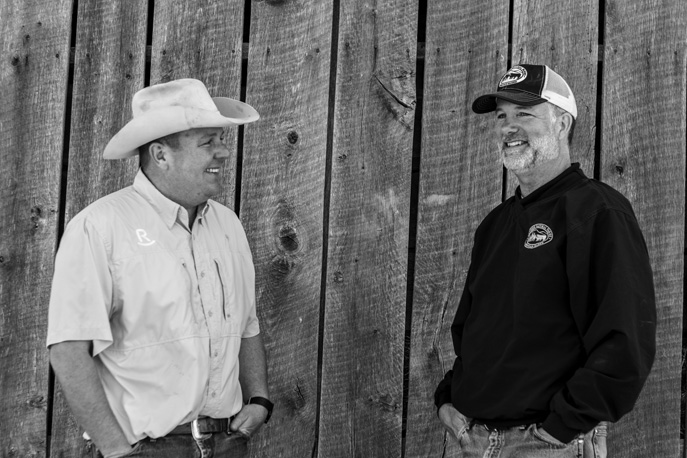
Brantley Ivey and Gary Mitchell, farmers and managing partners of Landcrafted Food.
Stubbornly real. Farmer owned.
These are the words that pop up front and center on the website of Landcrafted Food, a tiny cattle-ranching enterprise in Grayson County, Virginia. The four-employee, decade-old outfit is dedicated above all to two things: bringing all-natural, sustainably raised beef to market, and preserving Grayson County’s family farms.
The company’s motto — Community First / Always Wholesome / Leaving a Legacy — is one that managing partners Brantley Ivey and Gary Mitchell take seriously.
“I have roots in Grayson County that go back nine generations,” says Mitchell. “That’s pretty cool. But more important is the community and the people that I’ve grown up with and spent time around. I admire this community’s independence and spirit of self-sufficiency, but it’s tough for family farms to make a go of it these days. We’re on a mission to bring economic stability back to family farmers in our region.”
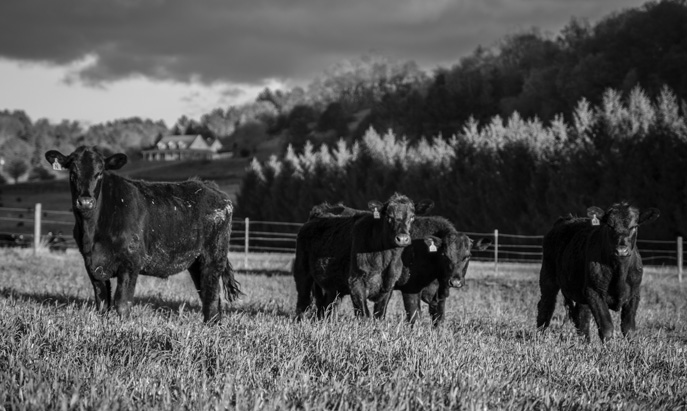
Cattle grazing on River Ridge Land and Cattle Company land.
Mitchell and Ivey met in 2007, right around the time Mitchell was launching Grayson Natural Farms—later to become Landcrafted Food—and the two quickly realized they shared a common vision. An 8th generation Floridian, Ivey had moved to Grayson County to manage the River Ridge Land and Cattle Company for local landowners and conservationists Charlotte and Phil Hanes.
“I grew up on a family farm just south of the Alabama border, as did my wife,” Ivey says. "Those farms no longer exist. It’s hard for small family farms to compete against Big Agriculture and its economies of scale. But there’s a growing segment of the population that doesn’t like Big Ag’s methods. People are looking for alternatives, and they’re willing to pay a little more for responsibly sourced food. Our goal is to help connect this market with local ranchers here in Grayson County.”
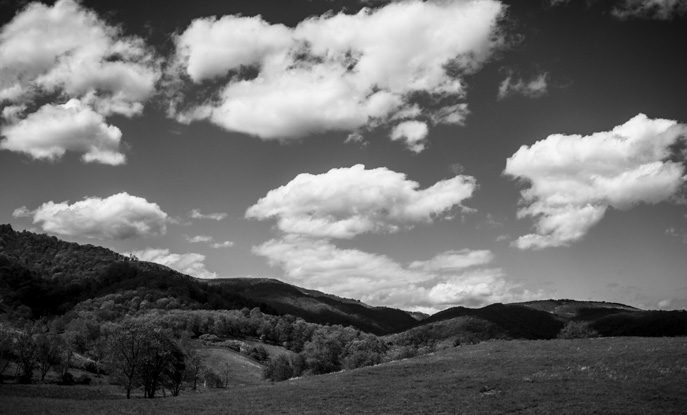
Rolling pastureland in Grayson County, Virginia.
Home to Virginia’s highest mountains, Grayson County is culturally a world away from the well-manicured Shenandoah Valley and the well-heeled gentility of Charlottesville and the quaint communities surrounding Shenandoah National Park in the northern Blue Ridge Mountains. Grayson County is hardscrabble country; less affluent, more devout, and politically a deeper shade of red. It’s also jaw-droppingly beautiful. From the high pastures where Mitchell and Ivey raise their cattle, one can see nearly 100 miles down the spine of the Appalachians to the Great Smoky Mountains and Mt. Mitchell, highest peak in the Eastern U.S.
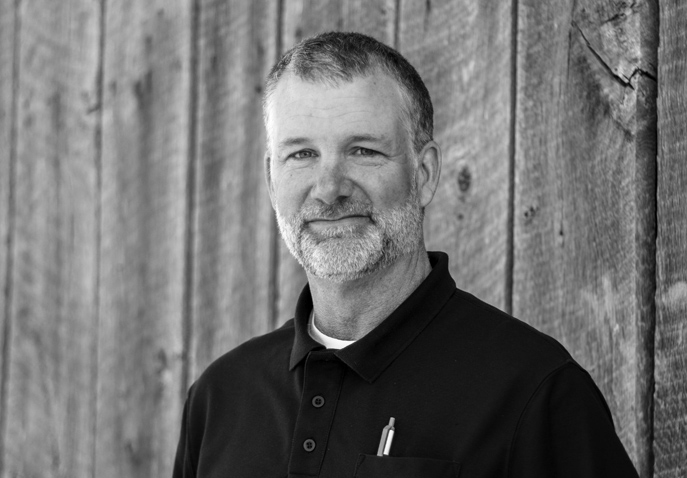
Gary Mitchell
Mitchell was born in San Francisco and didn’t move to “the home place” in Grayson County until he was 12. “It was a pretty radical change, but it quickly became home,” he recalls. “Our neighbor was a farmer, and he let me follow him around and help out. I loved working outdoors, and I ended up working for him all through high school. With his help I raised a few cattle of my own as a teenager, and I learned that I wanted to work for myself and be my own boss. It seemed like the perfect job.”
Still, after high school, Mitchell left the area to earn an engineering degree from Virginia Tech. A four-year stint with the Norfolk Southern Railway followed, but Mitchell jumped at the chance to return to Grayson County when a job opened up designing exercise machines for Nautilus, which had a production facility in the county. “The Nautilus job got me back to Grayson,” he says, “and I’ve raised cattle here ever since.”
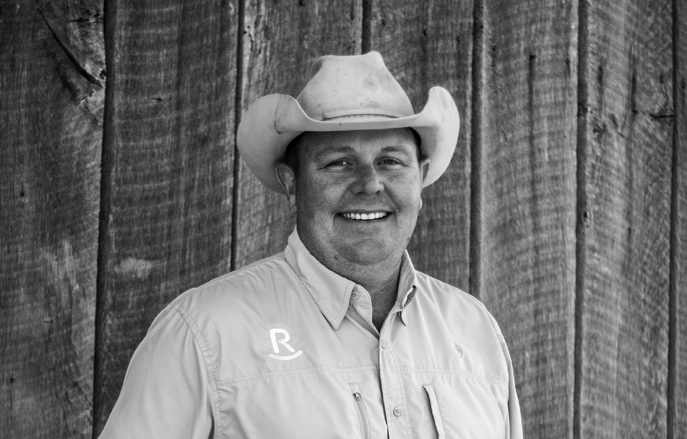
Brantley Ivey
Ivey, whose family row-cropped corn and peanuts in the Florida Panhandle, also raised cattle in high school. From there he went straight into the Marine Corps before earning a B.S. in animal science and a master’s degree in agriculture education at the University of Florida. He was working on animal disease traceability at Iowa State University when he got a call from Charlotte Hanes.
“I wasn’t initially interested in moving to Virginia,” he admits, “but I accepted the invitation to visit, and long story short, my wife and I fell in love with Grayson County and now I don’t think we’ll ever leave.”
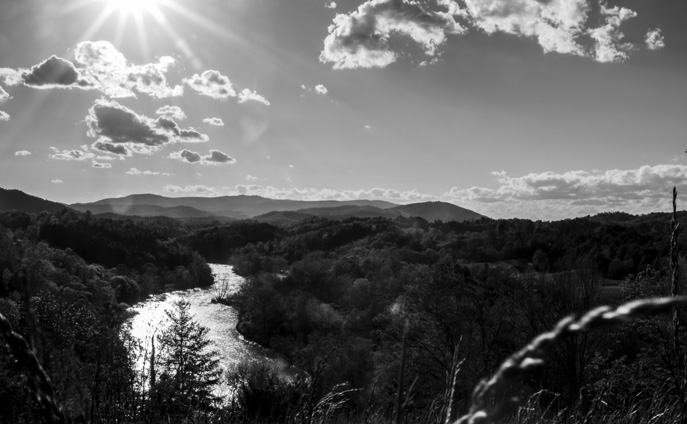
The New River flowing by River Ridge Food and Cattle Company land.
In 2008, Mitchell resigned his good-paying job with Nautilus to start Grayson Natural Farms. “I’d gradually accumulated quite a bit of land, and I had a large investment in equipment and cattle,” he says, “but I wasn’t getting the financial return my family needed. I was doing what I loved, but it needed to make more money. That’s when I decided to go the all-natural route.” And that's what caught Ivey’s attention.
“There’s plenty of demand out there for sustainably raised beef,” Ivey says, “and plenty of farmers are willing to raise their cattle that way. But Grayson County farmers haven’t yet developed a strong connection with this market. That’s our goal—to strengthen this connection, and ultimately return more dollars to local farmers.”
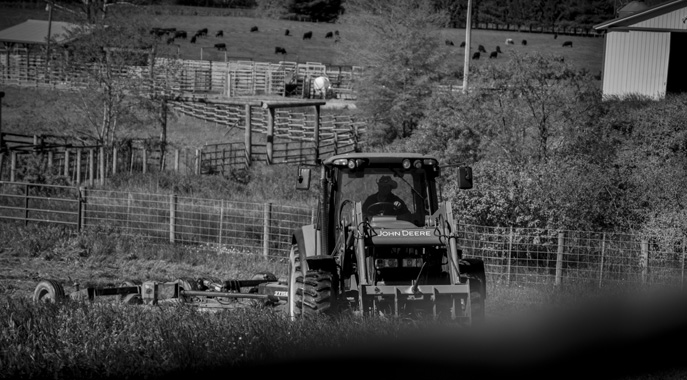
Brantley Ivy working the farm.
Grayson Natural’s steaks and ground beef were selling in big cities up and down the East Coast, but not in sufficient quantity to support the fledgling enterprise. The company needed a product that could travel and keep without refrigeration before it reached the consumer. The solution that Ivy and Mitchell hit on was vacuum-sealed smoked beef sticks, akin to beef jerky but all-natural and far healthier—something Mitchell attributes unabashedly to the old-school farming methods he & Ivy rigorously adhere to.
“We’re doing agriculture like it was being done 70 or 80 years ago,” Mitchell says. “All our beef is sourced from a small consortium of farms in and around Grayson County. We raise our animals 100 percent on grass, without antibiotics or hormones, and we have humane certifications from the Global Animal Partnership. Our product is also completely traceable to the farm. People want to know where their food comes from—some do, at least—and we can show them exactly where it comes from.”
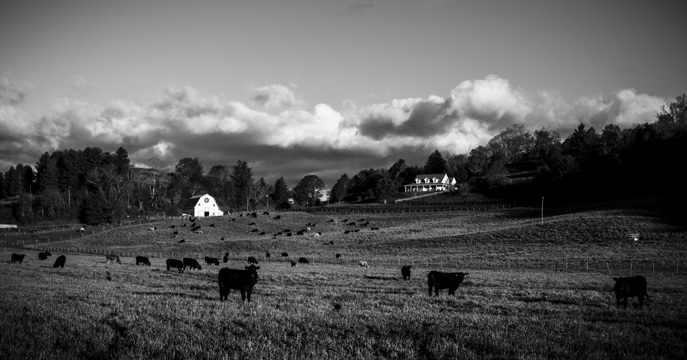
River Ridge Land and Cattle Company pastureland.
Cattle are rotated from pasture to pasture throughout the year to avoid overgrazing, and watercourses are cordoned off so the riparian habitat isn’t trampled and the water isn’t sullied. “It’s more work,” Mitchell says, “and it takes about six months longer to raise cattle on grass than in a factory setting. But it’s essential to what we do that our cattle are raised in a natural environment where they’re always on pasture and they grow at a natural pace on grass. It’s less efficient than the factory farm model, but our beef turns out to be healthier.”
Last year, Ivey and Mitchell purchased their own processing facility so the company would be vertically integrated. They also changed the name of the company to Landcrafted Food and began selling their smoked beef sticks online. Whether or not the enterprise will survive, however, remains to be seen.
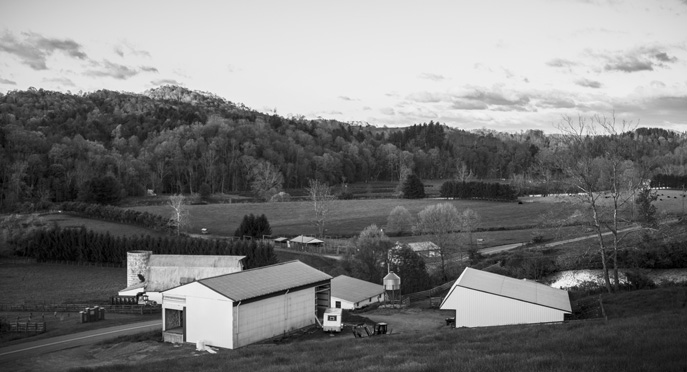
River Ridge Land and Cattle Company ranch buildings.
“We’re just a drop in the ocean,” Ivey says, “but a growing number of people want to support the kind of thing we’re doing. There’s a price somewhere for Big Agriculture, even if you don’t see it at the grocery store. Our product is expensive, but when you purchase family-raised beef you are voting with your wallet to save a family farm in Appalachia. These are values we want to pass on to the next generation.”
For Mitchell, too, that generational bequest is a motivating passion. “My children are now 19 and 21 and becoming independent, and I want to pass my land on to them as an income-producing asset. I wonder sometimes if I’ve said and told them everything I should have—I probably haven’t—but I take comfort in knowing they’ve been watching. It’s all about hard work, consistency, and integrity with everything you do and everybody you meet. The way I see it, I really have no choice but to succeed."
###
Why do farmers farm, given their economic adversities on top of the many frustrations and difficulties normal to farming? And always the answer is: "Love. They must do it for love." Farmers farm for the love of farming. They love to watch and nurture the growth of plants. They love to live in the presence of animals. They love to work outdoors. They love the weather, maybe even when it is making them miserable. They love to live where they work and to work where they live. If the scale of their farming is small enough, they like to work in the company of their children and with the help of their children. They love the measure of independence that farm life can still provide. I have an idea that a lot of farmers have gone to a lot of trouble merely to be self-employed to live at least a part of their lives without a boss.
- Wendell Berry, from Bringing it to the Table: On Farming and Food